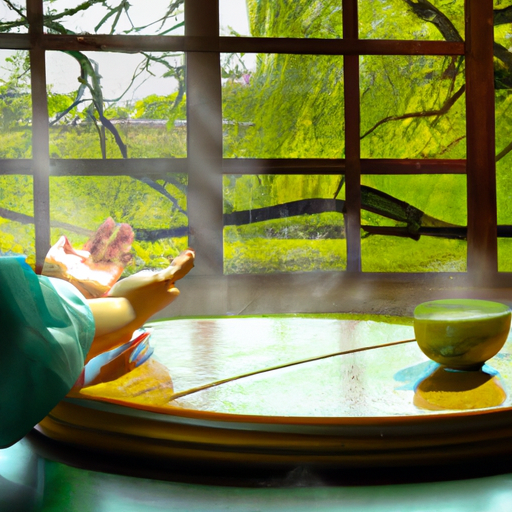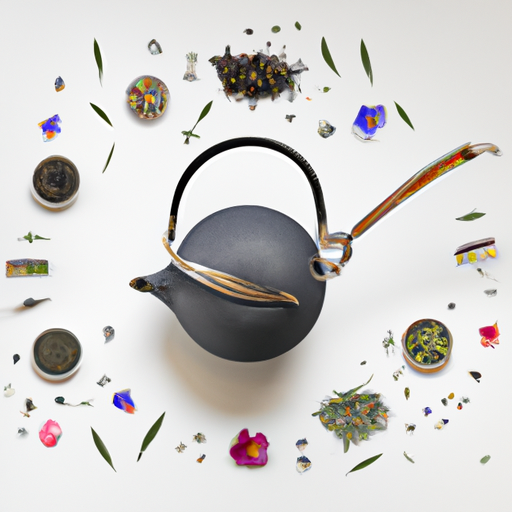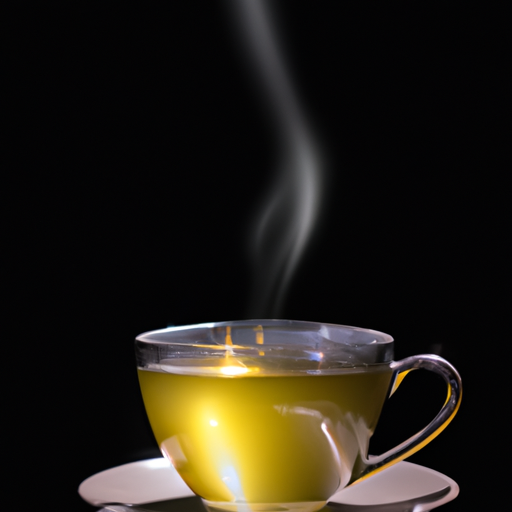Have you ever experienced the desire to uplift your mood? I have the perfect solution for you: matcha green tea powder. This vibrant, powdered tea has gained popularity in the wellness community for its potential to help with depression and enhance mood. It’s like a burst of happiness in a cup!
So, how does matcha work its magic? It’s all thanks to its powerful components. L-theanine, an amino acid found in matcha, has calming effects on the brain and can increase the production of serotonin and dopamine, the neurotransmitters associated with happiness and well-being.
Matcha also contains catechins, antioxidants that can help reduce brain inflammation, which has been linked to depression.
But the goodness doesn’t stop there. Matcha tea powder has been found to activate the dopaminergic system in the brain, potentially exerting an antidepressant-like effect. Studies have shown that matcha can improve cognitive function, reduce stress, and alleviate symptoms of anxiety and depression.
If you’re looking for natural alternatives to boost your mood, matcha is a great option. And it’s not the only one! Exercise, mindfulness meditation, a healthy diet, herbal remedies, and social support can also be effective in reducing anxiety and depression.
So, why not give matcha a try and let it be your mood-boosting elixir?
Key Takeaways
- Matcha green tea powder contains L-theanine, an amino acid that has calming effects on the brain and can increase the production of serotonin and dopamine, neurotransmitters associated with happiness and well-being.
- Matcha’s catechins, antioxidants, can help reduce brain inflammation, which has been linked to depression, potentially improving mood.
- Matcha tea powder activates the dopaminergic system in the brain, potentially exerting an antidepressant-like effect.
- Drinking over four cups of green tea daily was associated with a 51% lower chance of having depressive symptoms.
How does it work?
I’ve learned that matcha green tea powder contains L-theanine, which has calming effects on the brain. It can increase the production of serotonin and dopamine, neurotransmitters associated with happiness and well-being. This makes it potentially helpful for managing depression. The mechanism of action behind matcha’s mood-boosting effects has been supported by scientific research.
L-theanine promotes relaxation and reduces anxiety by increasing neurotransmitter production. It activates the dopaminergic system in the brain, potentially exerting an antidepressant-like effect. Additionally, matcha contains catechins, antioxidants that can help reduce brain inflammation. Inflammation has been linked to depression, so reducing inflammation may improve mood.
A study found that a single dose of matcha improved cognitive function and reduced stress in healthy adults. These findings suggest that matcha green tea powder may be an effective natural alternative for individuals dealing with depression.
Benefits and Effects
Consuming matcha green tea powder can have a positive impact on mental well-being. It does this by reducing inflammation, increasing neurotransmitter production, and promoting relaxation and alertness.
Matcha is rich in antioxidants, which have the power to protect the brain from oxidative damage and reduce brain inflammation. This is important because inflammation has been linked to depression.
Additionally, matcha contains L-theanine, an amino acid that increases the production of serotonin and dopamine. These neurotransmitters are associated with happiness and well-being. L-theanine also promotes relaxation and reduces anxiety by increasing neurotransmitter production.
Furthermore, matcha contains caffeine, which improves alertness, focus, and has mood-enhancing effects. Together, the combination of L-theanine, antioxidants, and caffeine in matcha can boost mood and mental performance.
Incorporating matcha into a daily routine may be a natural and effective way to support brain health and manage symptoms of depression.
Natural Alternatives
Spending time in nature can be a helpful natural alternative for managing symptoms of depression. Being in nature provides a calming and soothing environment that can positively impact our mental well-being. Research has shown that spending time in green spaces, such as parks or forests, can reduce symptoms of depression and improve overall mood.
Herbal remedies for depression can also be beneficial in managing symptoms. Certain herbs, such as St. John’s Wort and lavender, have been found to have antidepressant properties and can help alleviate depressive symptoms. It’s important to consult with a healthcare professional before trying any herbal remedies, as they may interact with other medications or have side effects.
In addition to herbal remedies, the role of social support in managing depression should not be underestimated. Having a strong support system of friends, family, or support groups can provide emotional support, encouragement, and a sense of belonging. Social connections can help reduce feelings of isolation and loneliness, which are common in depression.
Overall, incorporating herbal remedies and seeking social support can be valuable additions to a holistic approach in managing depression.
Frequently Asked Questions
Can matcha green tea powder be used as a substitute for medication in treating depression?
Matcha green tea powder can be used as an alternative treatment for depression. The science behind matcha’s mood-boosting properties lies in its L-theanine content, which increases serotonin and dopamine production, reducing inflammation, and promoting relaxation.
How long does it take for matcha green tea powder to start having an effect on mood?
How long does it take for matcha green tea powder to start having an effect on mood? Matcha green tea benefits include improving mood and reducing depression symptoms. While individual responses may vary, some people may start experiencing benefits within a few weeks of regular consumption. Try incorporating matcha into your daily routine with matcha recipes.
Are there any potential side effects or risks associated with consuming matcha green tea powder for depression?
There are potential risks associated with consuming matcha green tea powder for depression. It is important to consider the recommended dosage and consult with a healthcare professional before incorporating matcha into your treatment plan.
Can matcha green tea powder be used in conjunction with other natural remedies for depression?
Combining matcha green tea powder with other natural remedies for depression can be effective. Matcha’s mood-boosting effects, along with exercise, mindfulness, a healthy diet, and social support, can enhance overall well-being. Results may vary.
Is there a recommended dosage or frequency for consuming matcha green tea powder for its mood-boosting effects?
There is no specific recommended dosage or frequency for consuming matcha green tea powder for its mood-boosting effects. However, it is important to consume it in moderation as excessive intake of caffeine may lead to side effects such as insomnia, increased heart rate, and anxiety. It is always best to consult with a healthcare professional before incorporating matcha into your diet for depression.
Conclusion
In conclusion, matcha green tea powder is truly a mood-boosting elixir for those battling depression. Its unique combination of L-theanine, caffeine, and antioxidants work together in perfect harmony, like a symphony of healing for the mind.
With its ability to increase serotonin and dopamine production, reduce brain inflammation, and activate the dopaminergic system, matcha offers a natural and powerful solution for improving mood and alleviating symptoms of anxiety and depression.
So, let’s embrace this vibrant green elixir and let its calming waves wash away the darkness, bringing forth a brighter and more joyful existence.










